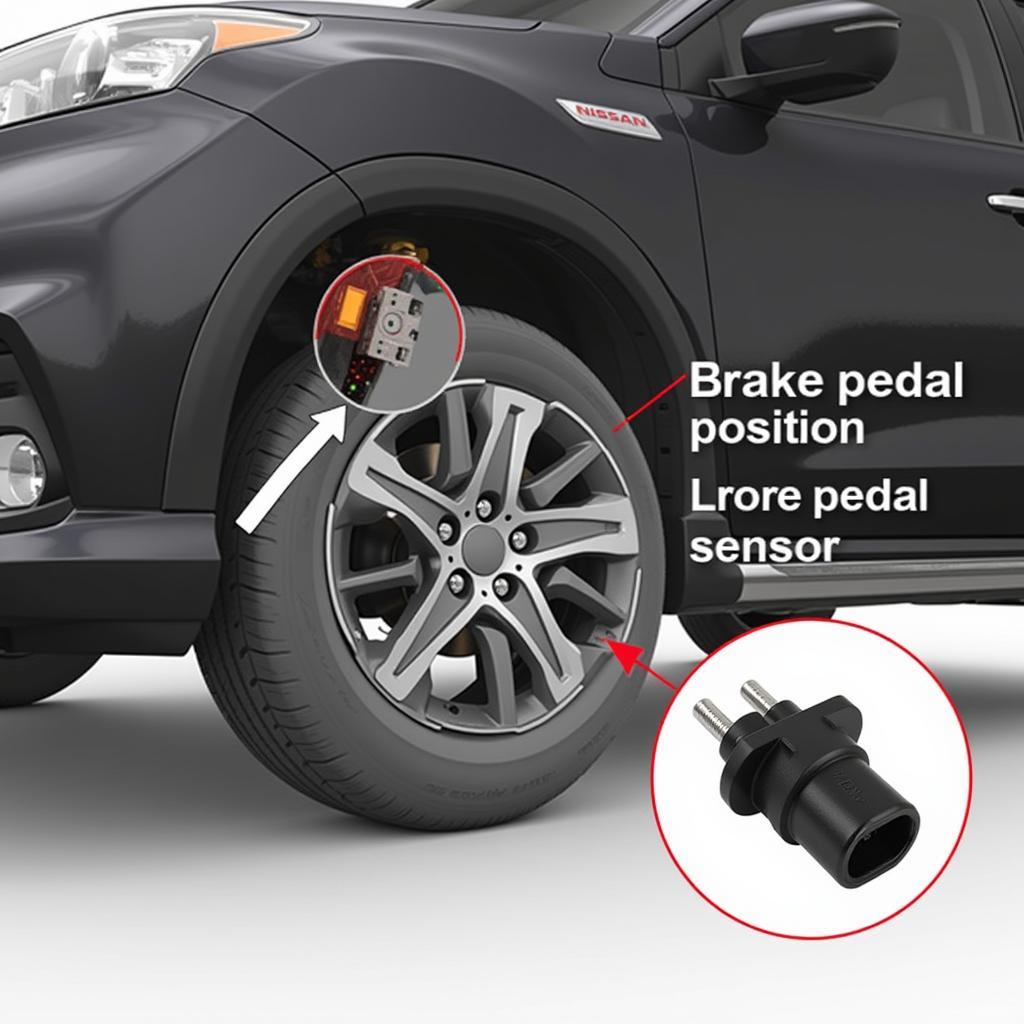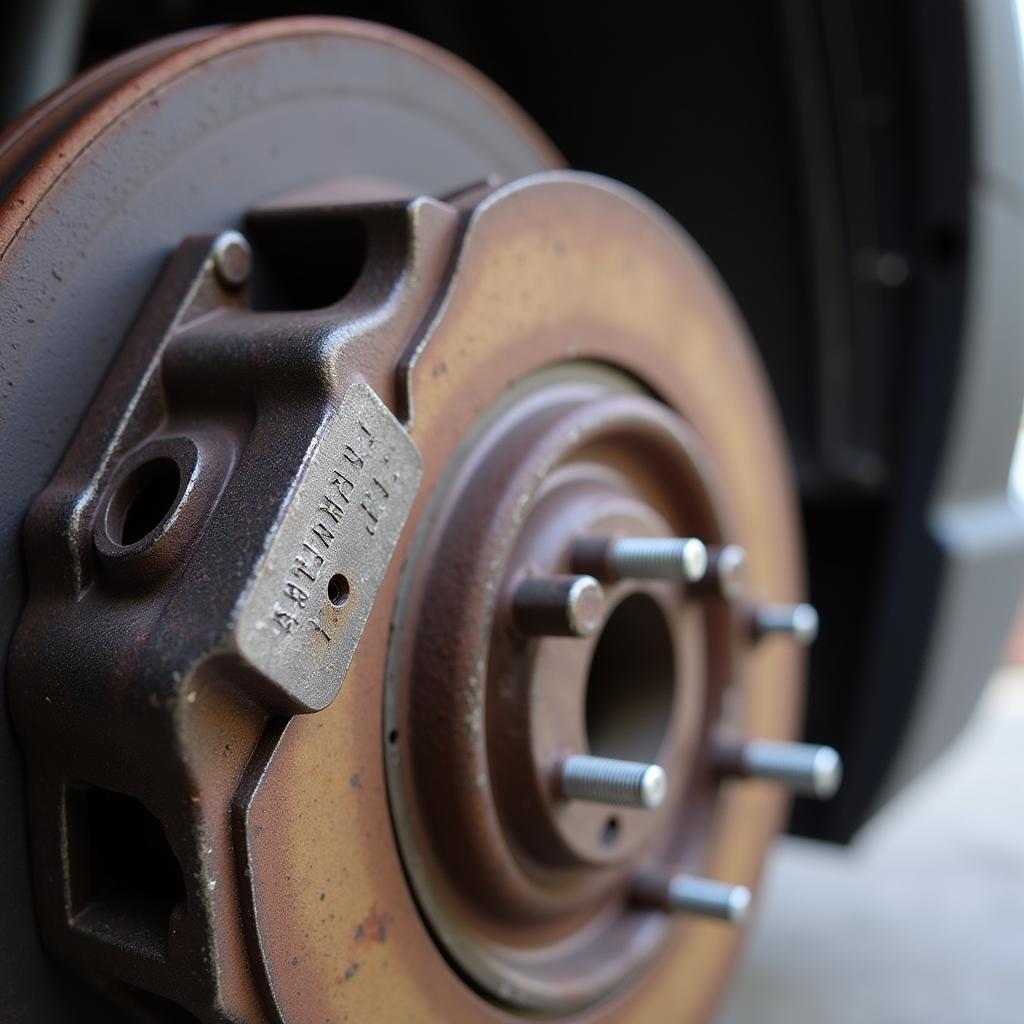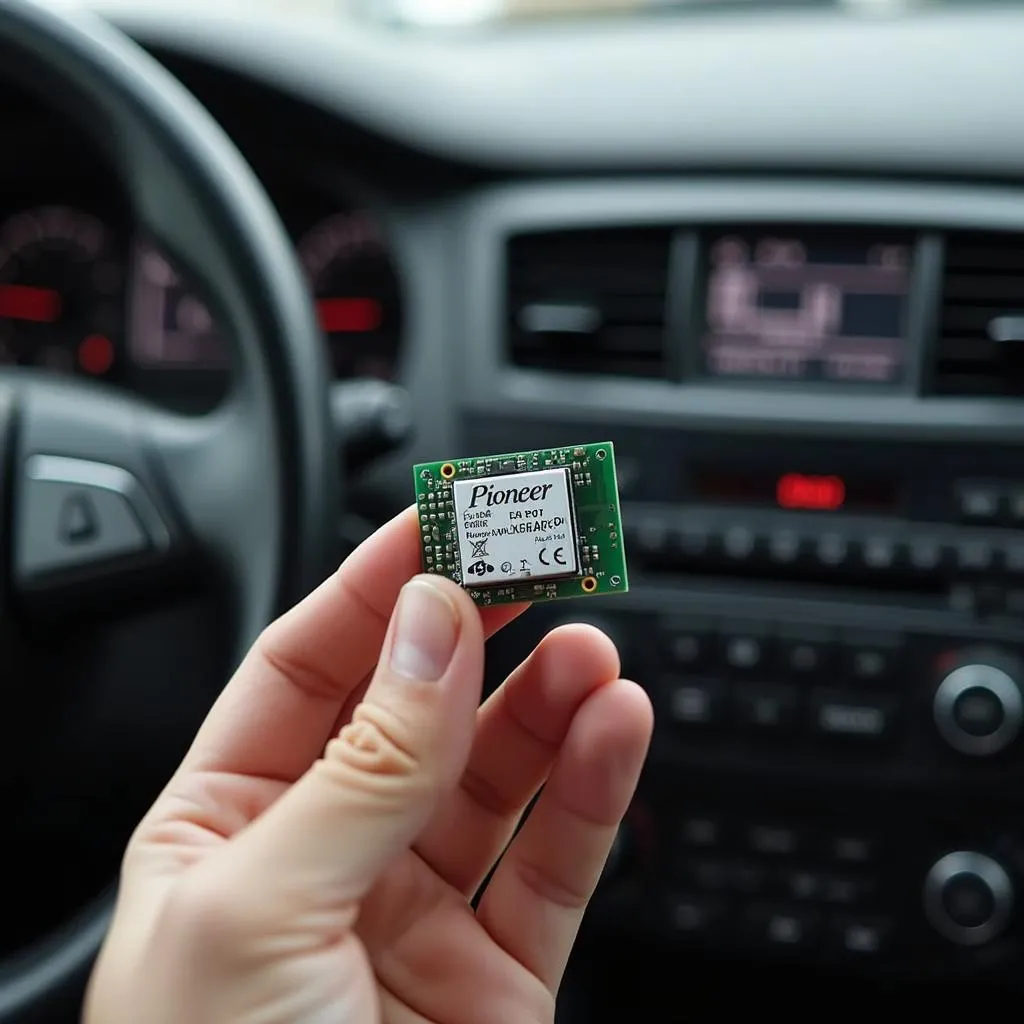If you’re a Nissan driver, you know that seeing any warning light on your dashboard can be a cause for concern. One light that can be particularly alarming is the white brake pedal warning light. This light is usually accompanied by a message on your dashboard display, such as “Check Brake System” or “Brake System Malfunction.” But what exactly does it mean when this light illuminates, and how concerned should you be?
This comprehensive guide will walk you through the common causes of the white brake pedal warning light on a Nissan dashboard and provide insights on diagnosing and addressing the issue.
Understanding Your Nissan’s Brake System Warning Lights
Before diving into the specifics of the white brake pedal warning light, it’s important to understand the difference between this and other brake-related warning lights on your Nissan’s dashboard. These lights are crucial for communicating the status of your vehicle’s braking system:
- Red Brake Warning Light: This light typically indicates a serious issue with your braking system requiring immediate attention. It could signal low brake fluid, a malfunctioning hydraulic component, or a problem with the electronic brake system.
- Yellow ABS Warning Light: The Anti-lock Braking System (ABS) light illuminates if there’s a fault detected within the ABS system. While your regular brakes may still function, the ABS, which prevents wheel lockup during hard braking, may be compromised.
Decoding the White Brake Pedal Warning Light
The white brake pedal warning light on your Nissan dashboard often signals an issue with the electronic brake system, specifically the Electronic Brake Force Distribution (EBD) or Vehicle Dynamic Control (VDC) system. These systems work in conjunction with your Anti-lock Braking System (ABS) to optimize braking force distribution and enhance vehicle stability.
Here’s what the white brake pedal warning light could mean:
- Faulty Brake Pedal Position Sensor: The brake pedal position sensor relays information about the degree to which the brake pedal is depressed. If this sensor malfunctions, it can trigger the warning light.
- Issue with the EBD System: The EBD system automatically adjusts the braking force applied to each wheel to ensure optimal braking performance and stability. A fault within this system can trigger the warning light.
- VDC System Malfunction: The VDC system helps maintain vehicle stability during cornering and other maneuvers by selectively applying brakes to individual wheels. A problem with this system can also illuminate the warning light.
 Brake Pedal Position Sensor Location
Brake Pedal Position Sensor Location
Common Causes of the White Brake Pedal Warning Light
Now that you understand the potential triggers, let’s explore some of the common reasons behind a white brake pedal warning light on your Nissan dashboard:
- Low Brake Fluid: While a more serious issue, low brake fluid can sometimes trigger the white brake pedal warning light in addition to the red brake warning light. It’s crucial to check your brake fluid level immediately if you suspect this to be the cause.
- Worn Brake Pads: While worn brake pads primarily trigger the brake pad wear indicator light, in some cases, they can also affect the brake pedal position sensor and trigger the white warning light.
- Faulty Wheel Speed Sensor: The wheel speed sensors play a critical role in the functionality of ABS, EBD, and VDC systems. A malfunctioning wheel speed sensor can disrupt these systems and trigger the warning light.
- Electrical Issues: Wiring problems, loose connections, or a failing battery can also interfere with the electronic brake system and lead to the illumination of the white brake pedal warning light.
What to Do When the White Brake Pedal Warning Light Turns On
1. Assess the Situation:
- Other Warning Lights: Check your dashboard for other warning lights, such as the red brake light or the ABS light.
- Driving Conditions: Consider the driving conditions before the light appeared. Were you driving in slippery conditions, braking hard, or navigating a steep incline?
2. Take Immediate Action:
- Pull Over Safely: If the warning light is accompanied by unusual noises, vibrations, or a change in brake pedal feel, pull over to a safe location immediately.
- Check Brake Fluid: If it’s safe to do so, carefully inspect your brake fluid level. If it’s low, adding brake fluid might temporarily address the issue, but it’s crucial to visit a mechanic to diagnose the underlying cause of the fluid loss.
- Avoid Driving: If you suspect a serious issue with your braking system, avoid driving and have your vehicle towed to a qualified mechanic or dealership.
3. Diagnose and Repair:
- Professional Diagnosis: To pinpoint the exact cause of the white brake pedal warning light, it’s essential to have your Nissan diagnosed by a qualified mechanic specializing in Nissan vehicles. They have the necessary diagnostic tools and expertise to interpret fault codes and identify the root cause of the issue.
- Addressing the Issue: The repair will depend on the specific problem diagnosed. It could involve replacing a faulty sensor, repairing wiring issues, or addressing problems with the EBD or VDC system.
nissan warning lights battery brake
Tips for Preventing Brake System Issues
- Regular Brake Inspections: Schedule routine brake inspections with a trusted mechanic, especially as your vehicle accumulates mileage.
- Timely Brake Pad Replacement: Replace your brake pads as recommended in your Nissan’s owner’s manual or sooner if you notice signs of wear.
- Quality Brake Fluid: Use high-quality brake fluid that meets your vehicle’s specifications and have it flushed and replaced periodically as recommended by Nissan.
white brake pedal warning light nissan
Conclusion
While the white brake pedal warning light on your Nissan dashboard can be concerning, understanding its potential causes and taking prompt action can help ensure your safety on the road. Remember to prioritize regular maintenance, address any warning lights promptly, and consult with a qualified Nissan mechanic for accurate diagnosis and repair.


